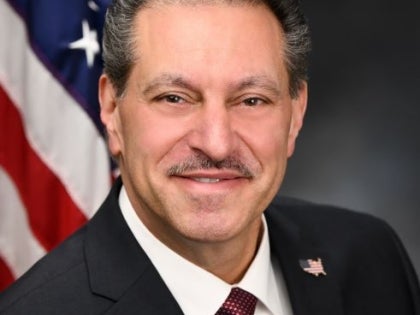
Addabbo & Meng: State Should Continue Crackdowns on Alcohol Sales to Minors From Nyc Licensed Groceries, Liquor Stores
Joseph P. Addabbo Jr
November 29, 2011
-
ISSUE:
- Alcohol
According to a November 22 NY 1 cable TV news report, 118 stores in New York City sold alcohol to underage decoys, of which 34 out of 67 Queens stores were charged. A full list of the offending stores in Queens are included in this link: http://www.sla.ny.gov/. Northern and southern Queens areas such as Astoria, Long Island City, Corona, Cambria Heights, St. Albans and Jamaica were cited.
The investigators sent underage volunteer decoys into 234 licensed groceries and liquor stores in all five boroughs. Specific locations and neighborhoods were targeted that were found to have had a high activity of selling to minors. Licensees charged by the SLA with underage sales face civil penalties of up to $10,000 per violation, with fines starting from $2,500 to $3,000 for a first-time offense. Repeat offenders also face potential suspension or revocation of their licenses. In addition, NYPD issues criminal court summonses for those making underage sales, charging clerks with Unlawfully Dealing with a Child in the First Degree (a class A misdemeanor) and Prohibited Sale of an Alcoholic Beverage (an unclassified misdemeanor). In total this year, the SLA has conducted 134 underage details, visiting 1,558 premises around the state and in New York City, charging 585 establishments with selling alcohol to minors.
Late in August 2011, bodegas pledged to work with the City after a crackdown on underage drinking resulted in $1.5 million in fines, during a previous three-day sting found that three out of every five establishments sold alcohol to minors. After meeting with the SLA, officials from the Bodegueros Association said store owners should have to pass a course on underage drinking before receiving a liquor license. They noted then that when an item is put on a counter by a minor that looks like soda or a fruit punch and the bodega owner is not aware that it can’t be sold to an underage customer, that’s where the problem starts. At that time, the Bodegueros Association was hoping that the bust would lead to a better relationship with inspectors. And, the Association noted it wasn’t surprised by the number of offending stores, given regulators’ lax enforcement over the past decade. In August, Queens had the best compliance rate, with only 28 percent of clerks breaking the law. This month, 34 of 67 stores were offenders in Queens; 26 of 62 in Manhattan; 41 of 54 in Brooklyn; 11 of 25 in the Bronx; and 6 of 26 on Staten Island.
Says Addabbo, “Both Assemblymember Meng and I act as legislative liaisons with the State Liquor Authority. While neither of our districts have included offending stores, our districts do have large populations of youth who come from homes where both parents work all day. If we don’t keep on top of such potentially serious violations of existing NYS law, we’ll see an increase in youth in our districts and around New York City purchasing alcohol, which could possibly lead to driving drunk on our local roads, endangering all. Both of us are eager to go back into legislative session in January to push for passage of this legislation through our respective chambers.”
Adds Meng,“Stores that sell alcohol for off-premise consumption should be held to the same standards as restaurants and bars. Our bill is important in decreasing underage drinking in Queens and New York City. We will work closely with our Community Boards and the Queens Borough President's office to ensure that the community's voice is heard.”
Under current state law, the State Liquor Authority is required to consider several factors upon receipt of an application for a new or renewed license to sell liquor for on-premises consumption. Among these factors is the opinion of the municipality or community board which has jurisdiction over the area where the retail establishment will be located. However, the community has no input in the granting of licenses for establishments that sell liquor for off-premise consumption. With many communities seeing an increase in complaints regarding the sale of beer and liquor to minors at grocery and liquor stores, it is just as important for the community to have an opinion in the granting of off-premise licenses. This bill will correct that oversight. In the 2009-2010 legislative session, the bill passed the Assembly but died in the Senate’s Economic Development Committee. The bill also had passed the Assembly the previous two legislative sessions of 2007-2008 and 2005-2006.
# # #
--
Share this Article or Press Release
Newsroom
Go to Newsroom